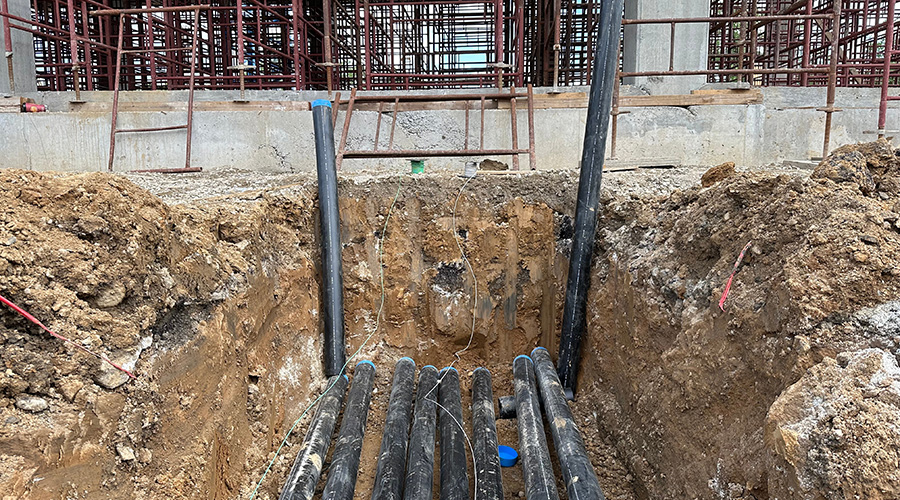« Back to Facilities Management News Home
« Facilities Management
Siemens: Company Partners with IBM to Announce Cloud-Based Building Solutions
Las Vegas, Nev. — Feb. 23, 2016 — The Siemens Building Technologies Division and IBM announced cloud-based solutions that will leverage Siemens’ building expertise and IBM Internet of Things (IoT) capabilities to maximize the potential of connected buildings and the data they create. The solutions will help corporate real estate owners across multiple industries drive business results and meet energy efficiency goals.
Siemens is integrating software from IBM's Watson IoT Business Unit, including analytics and asset management, into its cloud-based Navigator energy and sustainability management platform. This combination will help benefit corporate real estate customers in many ways, including:
• Corporate real estate owners and operators will now be able to leverage internal and external data on Siemens’ Navigator platform to benchmark building performance and forecast operational budgets.
• Predictive analytics can be applied for fault detection and diagnosis so potential issues can be addressed before anything happens.
• Text recognition and analytics for utility invoice validation can identify billing errors and enhance data quality.
• Mobile applications can enable energy audits and creation of audit reports from anywhere.
The new Navigator platform is being built out on IBM software. Navigator leverages data from the portfolio of 300,000 buildings that Siemens provides services for. In those buildings, “we can pull data from almost any source of information,” including Siemens systems, building systems from other companies, and external sources of data like weather information, said Dana Soukup, vice president, enterprise client solutions, Siemens Building Technologies,
The partnership with IBM pairs Siemens’ knowledge of buildings with IBM’s expertise in analytics to provide a robust way to pull data, analyze it, prioritize it, make recommendations, and then be able to act on those recommendations. For example, if an air handling unit was operating outside the norm, that performance could be benchmarked against a database that includes other AHUs to identify likely problems, which Siemens could then address with maintenance or repair services.
“We want to make it easy for our customers to use this system to look ahead” and identify potential failures, Soukup said. “It’s a lot cheaper to repair or maintain a piece of equipment than to replace it.
“We’re not out selling software per se. We are using this as a way to take care of our customers and to drive services that help them have better business performance. The software is a means to an end.”
Building intelligence is evolving through emerging technologies in cloud computing, data analytics, and intelligent field devices — effectively merging the virtual and real worlds within the built environment. This shift provides an opportunity to transform real estate assets into active contributors to business success. The solution addresses this opportunity by delivering greater transparency and flexibility to support the decision-making process while creating greater efficiency and cost savings to help impact the bottom line.
“Of all the software solutions available to corporate real estate owners today, none leverage facility optimization solutions from a service provider like Siemens,” said Matthias Rebellius, CEO, Siemens Building Technologies Division.
The Siemens Navigator platform provides a customizable suite of services that enables monitoring of building system performance, energy demand, and energy supply more effectively and efficiently across a single building, a campus, or an entire real estate portfolio.
With IBM’s IoT technologies integrated into the new Navigator platform, customers will experience a user-friendly interface and will benefit from more advanced analytics capabilities as well as the ability to process more robust data sets from their real estate portfolios.
The Navigator platform can also integrate with any system, including the Siemens Desigo CC building management system and third-party technologies. The new Navigator functionality will be rolled out in packages over the coming years starting this year, with releases in May and October.
“In late spring we will be releasing our utility bill management offering through this platform,” Soukup said. In fall, energy master planning, energy and water auditing, and sustainability program management modules will be released.
“Our collaboration (with IBM) will form a strong foundation for the development of a greater ecosystem that will support other providers to bring improved functionality and innovations to the services and solutions we offer to our shared clients,” Rebellius said.
The corporate real estate industry is just beginning to scratch the surface of advanced data analytics for the purpose of producing consistent results and enabling easier decision-making. Operating costs account for 71 percent of the total cost of owning a building and real estate is often the second-largest expense on the income statement for large enterprise organizations.
Building owners and operators can now leverage solutions across the entire lifecycle of their real estate assets to predict energy efficiency trends and equipment availability issues in advance, so that building operation can be as reliable, cost-effective, and sustainable as possible.
More From 4/19/2025 on FacilitiesNet







